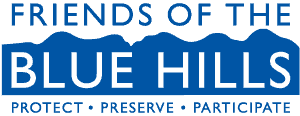The following is the press release from the Department of Conservation. For more information about the management plan visit the DCR website.
DCR Approves 2018 Deer Management Plan for Blue Hills State Reservation
BOSTON – The Department of Conservation and Recreation (DCR), in consultation with the Massachusetts Division of Fisheries and Wildlife (MassWildlife), today approved the 2018 Deer Management Plan for the Blue Hills State Reservation. Based upon the success of controlled hunting efforts last year, DCR and MassWildlife will implement a controlled hunting plan this yearthat closely mirrors last year’s plan. Similar to last year, the 2018 plan features two phases of hunting in the Blue Hills including permitted archery hunting in limited areas of the reservation during the month of November and a four-day shotgun hunt in late November/early December. While the 4-day shotgun hunt will remain exactly the same as last year, the permitted archery hunt includes an additional 180 acres that have already been hunted in prior years during the shotgun segment of the controlled hunt. As such, there are no overall significant enhancements to this year’s deer management program.
Under legislative mandate, the DCR is required to implement a management plan where deer overpopulation is negatively impacting forests, water resources, or plant growth on department owned land. The Blue Hills Deer Management Program utilizes controlled and permitted hunting as part of DCR’s efforts to manage the high deer densities within the state reservation. Benefits of managing the deer herd within the Blue Hills Reservation include:
- The promotion of tree and plant regeneration, including rare plants;
- The sustainability of species diversity; and,
- The diminished risk of forest wildfires due to the growth of plant life.
DCR has safely and successfully conducted three annual controlled hunts in the Blue Hills Reservation since 2015. In light of DCR’s commitment to long-term deer management in the Blue Hills and in order to continue these successful efforts, DCR and MassWildlife will continue to implement controlled hunting in the Blue Hills in 2018. Similar to last year, Phase 1 of this year’s program features limited archery hunting in designated areas of the reservation on Mondays through Thursdays between November 5, 2018 and November 21, 2018. Licensed hunters will be required to submit an application and DCR will utilize a random lottery to select 100 hunters to receive permits.
Also similar to last year, Phase 2 of the program includes four days of shotgun hunting on the following days; Week 1: Tuesday, November 27, 2018, and Thursday, November 29, 2018; and, Week 2: Tuesday, December 4, 2018, and Thursday, December 6, 2018. Licensed hunters will be required to submit an application and DCR will utilize a random lottery to select a total of 262 hunters. Half of these hunters (131) will be permitted to hunt during the first two days and the other half will be permitted to hunt during the second two days.
The use of licensed public hunters in managing deer populations is one of the most widely used management methods employed throughout the United States. In Massachusetts, it is the primary management tool supported by MassWildlife and has been shown to be successful in addressing situations involving deer overabundance and vegetation over-browse. The Quabbin Reservoir controlled deer hunt is the most notable example. In addition, DCR manages thousands of acres of forest and parkland across the Commonwealth where licensed hunters are allowed to hunt during the regulated seasons.
Hunters interested in applying for archery and/or shotgun hunting should click on the following link: Blue Hills Deer Management Program to review application instructions as well as to complete and submit an application. Selected hunters will be required to complete a mandatory hunter orientation to review the guidelines for deer hunting in the Blue Hills. Also contained on the program web page is the 2017 Program Overview & Results, which provides information regarding logistics and an analysis of harvest results from last year’s controlled hunting program.
Photo credit: David Gouthro (Braintree)








